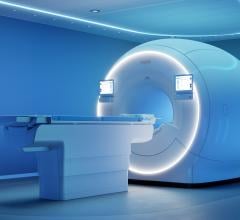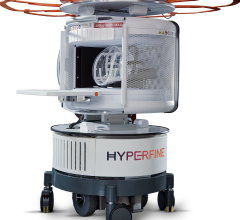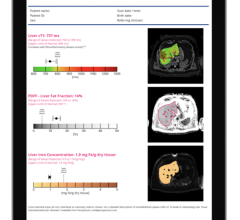May 15, 2009 – New data announced today at Heart Rhythm 2009, the annual congress of the Heart Rhythm Society, demonstrate that patients implanted with the investigational EnRhythm MRI SureScan pacing system experienced no complications related to the use of magnetic resonance imaging (MRI).
Sponsored by Medtronic Inc., the study confirms that the pacing system can help cardiac device patients benefit from the use of MRI, a critical imaging technique commonly used in disease diagnosis. Currently, due to safety considerations, there are no implantable pacemakers or defibrillators approved for use with MRI in the United States. Commercially released in Europe last fall, the EnRhythm MRI SureScan system is the world’s first and only pacing system designed and approved for use with MRI.
Patients with currently implanted pacemaker and defibrillator systems are strongly discouraged from receiving an MRI scan, according to medical guidelines and the U.S. Food and Drug Administration. Studies have shown that commonly used MRI scanners can interrupt or withhold pacing therapy, deliver unnecessary pacing therapy that may be hazardous and possibly life-threatening, and/or cause damage to the device, regardless of which company manufactured the device.
“Each year, approximately one million people are implanted with a pacemaker, thousands of whom should receive diagnostic MRI scans,” said Bruce L. Wilkoff, M.D., director of Cardiac Pacing & Tachyarrhythmia Devices, Department of Cardiovascular Medicine and professor of medicine at Cleveland Clinic Lerner College of Medicine of Case Western Reserve University. “This investigational study showed positive results, indicating that many more patients may have access to MRI, a vital and often irreplaceable tool in detecting and managing conditions such as cancer and neurological disorders.” Dr. Wilkoff is a paid consultant assisting Medtronic in the development of this therapy.
Results showed that Medtronic’s investigational EnRhythm MRI SureScan pacing system still performs as intended during and after an MRI when used according to the product’s labeling. The data showed no MRI-related complications, and no arrhythmias, or asystole (absence of electrical activity in the heart) during MRI scans.
“Despite well-documented risks and warnings of MRI-related complications, pacemaker patients do receive MRI scans off label,” said David Steinhaus, M.D., medical director of the Cardiac Rhythm Disease Management business at Medtronic. “Physicians and patients faced with urgent clinical needs have had to make difficult risk/benefit decisions and accept the risks of an MRI scan. Through our development process, we identified real risks and designed a system to address these risks for pacemaker patients. We are encouraged by the clinical results of the EnRhythm MRI SureScan pacing system, as we believe that providing safe access to MRI for pacemaker patients can reduce risk and lead to better health outcomes.”
This prospective, randomized, controlled trial involved 464 individuals successfully implanted at 41 centers in the U.S., Canada, Europe and the Middle East. After successful implant of pacemaker and leads, 258 patients were randomized to MRI and 206 to no MRI (control). All patients were evaluated before and after the scan, and one week and one month after MRI scan/control visit. There was no difference in performance between the MRI group and the control group.
For more information: www.medtronic.com


 January 21, 2026
January 21, 2026 








